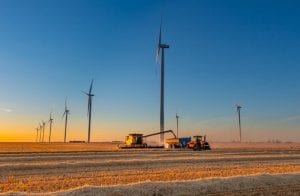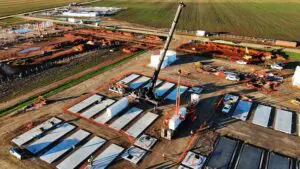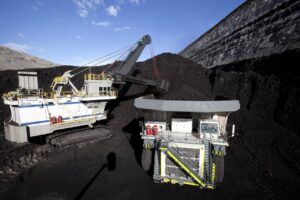Prime Minister Malcolm Turnbull has announced a significant reshuffle in the energy, resources and environment portfolios in his ministry, with former environment minister Greg Hunt shifted to industry and innovation and climate denier Matt Canavan to head resources and northern Australia.
The most significant move, however, is the combination of the environment and energy industries under a super portfolio to be headed by Josh Frydenberg, a strong proponent of nuclear energy.
Climate activists may well welcome the long called-for merger of energy and environment – and Labor’s shadow ministry had already been merged under the leadership of Mark Butler – but may be nervous about the appointment of Frydenberg.
The Victoria MP has long been a supporter of nuclear energy, and has shown he is also a strong supporter of the coal industry, recently insisting it had a strong future, describing it as a “living, breathing, success story.” The minister now responsible for the environment has argued that there is a “strong moral case” for new coal mines.
Frydenberg will have responsibility for the renewable energy target, and the future of agencies such as the Australian Renewable Energy Agency, which the Coalition wants to strip of its remaining $1.3 billion of legislated funds.
He has been highly critical of Labor’s more ambitious renewable energy targets.
Frydenberg also has strong views on nuclear energy. He made it one of his three major issues when he made his maiden speech to parliament in October, 2010, and then made a series of speeches and articles pushing the technology.
In The Australian newspaper in early 2011, Frydenberg said nuclear was safe and cheap, and expected that sometime soon nuclear plants could likely be constructed within 2 ½ years. He also quoted nuclear advocate Ziggy Switkowski as saying that Australia could be 90 per cent powered by nuclear energy by 2050.
He has supported the establishment of a nuclear waste facility on the South Australian property of a former Liberal MP.
On coal, and the Adani coal project in Queensland, Frydenberg said: “There is a strong moral case here,” he told ABC’s Insiders program. “Over a billion people don’t have access to electricity. That means that more 2 billion people today are using wood and dung for their cooking.”
Canavan, meanwhile, is from the hard right of the Coalition and a strong supporter of new coal fired generators in north Queensland, and of digging up more coal mines.
He said last year that climate science was not settled. He said there had been no increase in temperatures for 18 years.
“Accordingly it holds that the policy action we should take in response should be less ambitious, less costly and less binding than what was envisaged at Copenhagen six years ago,” he told the Senate last December.
“Despite what you might hear in the media—and, indeed, what you heard in this chamber only a short while ago—climate change science has become less certain and gives us less reason to worry since the last major climate conference in Copenhagen six years ago,” he told parliament last December.
“Accordingly it holds that the policy action we should take in response should be less ambitious, less costly and less binding than what was envisaged at Copenhagen six years ago.”
Turnbull once said he would not lead a government that did not take climate change seriously.








